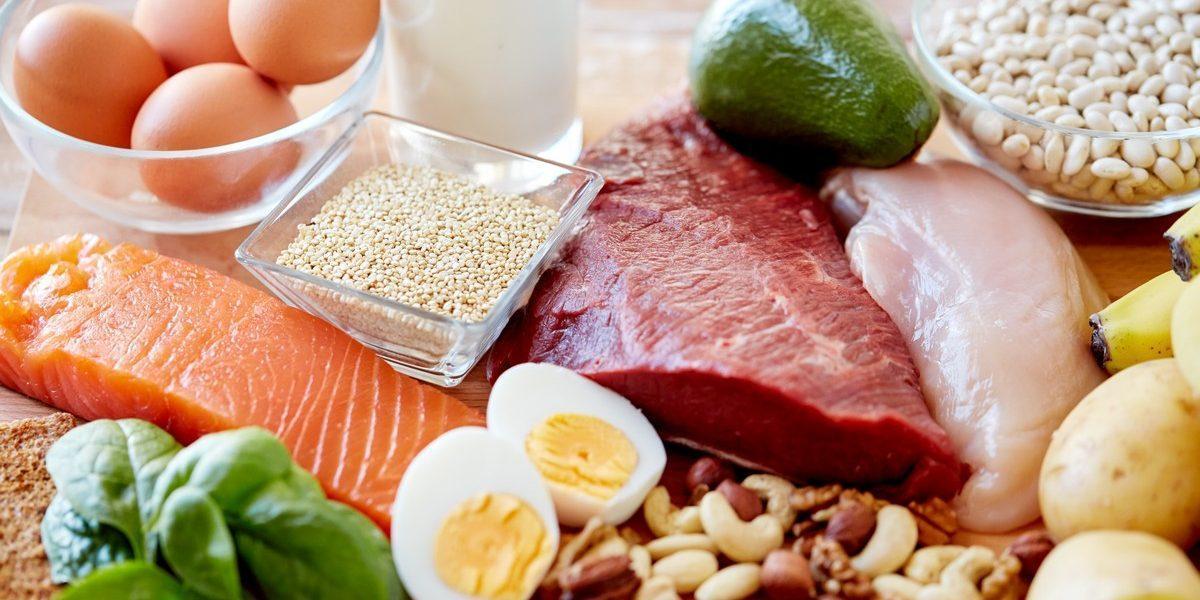
Protein Power
Everyone is talking about it – in the clubs, in magazines, online – so what’s all the fuss about protein?
What is Protein?
First to understand what protein is. Protein is a macro nutrient that is found in animal products like meat, milk products, eggs and fish, as well as non-animal products – nuts, legumes and some grains.
The basic structure of protein is a chain of amino acids and the human body needs a number of amino acids in large enough amounts to maintain good health.
Getting the right amount of protein in your diet can offer a number of health benefits. From weight loss to muscle building, immunity to metabolism support, studies have shown that consuming the right amount of protein can help.
Weight Loss
Protein foods help you feel full for longer which can reduce snacking in between meals which will in turn reduce overall calorie consumption. It takes longer to break down and digest protein than carbohydrates so when it is included in your meal, you will feel fuller for longer.
Protein can also balance blood sugars which results in few cravings and prevents muscle breakdown for people on a weight loss diet.
Muscle Regeneration
All vital body parts are made up of protein – organ’s, skin, bones, blood and muscles! A predominant function of dietary protein is to repair and rebuild muscle fibres by supplying your cells with protein building blocks called amino acids. After exercise or any muscle activity, protein is required for muscle regeneration.
Immune System
The immune system is the body’s defence against infectious organism and through a series of steps called the immune response, the immune system attack organisms and substances that invade body systems and cause disease. Proteins are vital for building a strong immune system. Research studies have shown that a diet deficient in protein can result in the reduction of immune cells and the ability of the body to make antibodies, and a significantly compromised immune system.
Ageing
As we age we lose muscle mass and strength, sarcopenia is the medical term. Research has shown that consuming adequate amounts of high quality protein at each meal, in combination with physical activity, may delay the onset of sarcopenia, slow its progression and reduce the magnitude of its functional consequences.
Metabolism
The thermic effect of food is a term used to describe the energy required for the digestion, absorption and disposal of the food we eat. In general a person can expect to burn 5 to 10% of calories consumed due to the thermic effect but this will vary depending on the proportions of fat, carbohydrates and protein that are in a meal. Protein is the macronutrient that requires the greatest amount of energy to digest with as much as 30% of the calories contained in protein being burned during digestion. Carbohydrates and fats are easier to digest and only around 5% of calories will be burned during digestion.
Bones
As we get older, the amount of bone mass in our bodies steadily decreases, especially in women. It can however be prevented through a healthy lifestyle and a balanced diet rich in calcium and vitamin D. Research has also indicated that protein in the right amounts has a positive effect on bone mineral density at all stages of your life.
Some of the signs you aren’t getting enough protein
- Food cravings and snacking between meals may be the consequence of a high sugar/carb low protein diet. Protein will help even out blood sugar highs lows.
- Muscle weakness or joint pain – if you don’t eat enough protein your muscles will start to supplement the calories instead of using the protein you eat to build muscles, tissues and cells.
- Slow recovery from injury and illness – new cells, tissue and skin need protein to repair and heal. Protein also critical in supporting your immune system.
- Weak nails, thin hair and sagging skin
- Fluid retention – particularly around the ankles and feet
- Poor immunity – getting sick regularly
- Lack of mental energy, anxiety, moodiness
- A sluggish metabolism & weight gain
The amount of protein you need per day will depend on your weight, age, health and activity level but as a guide the recommended daily intake for women is 0.75g per kg of bodyweight and for men 0.84g per kg. So the target for a 65kg woman would be at least 49 grams per day.
1 egg contains 13 grams of protein
125g salmon fillet contains 25 grams of protein
¼ cup of chickpeas contains 10 grams of protein
Ideally you should have protein with every meal rather than eating it all in one go. This gives your body the right amount of protein it needs at any given time since only so much can be utilised at once. The protein that is not used by the body will be stored as fat or eliminated. Eating protein throughout the day is an ideal way to balance blood sugar levels, reduce cravings and support your metabolism.
Image and article sourced from Go Natural
